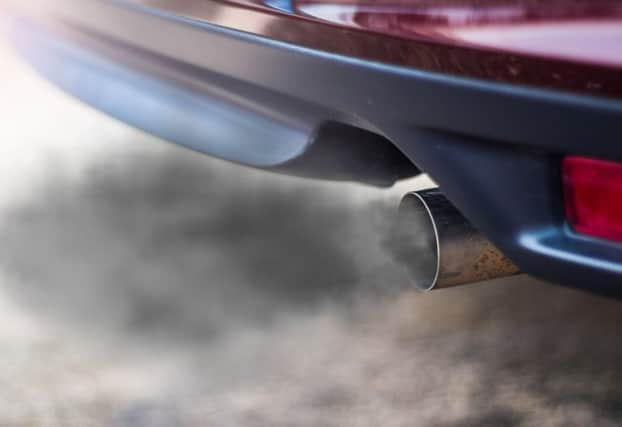Greenhouse gases rise but Scotland hits 2015 climate target


A new report from the Scottish Government shows emissions in 2015 fell by 41 per cent compared to baseline levels in 1990, but rose by 1.8 per cent since the previous year.
The increase has been attributed to a rise in emissions from road traffic, tree felling and households using extra fuel during a cold winter.
Advertisement
Hide AdAdvertisement
Hide AdTotal emissions, adjusted to account for the EU carbon trading scheme, were 45.504 MtCO2e (million tonnes of carbon dioxide equivalent).
The 2015 fixed annual target was 45.958 MtCO2e.
It’s the second time in a row that Scotland has hit its annual target, after failing for four consecutive years.
There was a record drop in emissions of 45.8 per cent in 2014, which surpassed an interim goal for a 42 per cent reduction by 2020.
The biggest fall in emissions in 2015 was in the energy supply sector, which reported a 12 per cent cut.
This is largely due to a major phase-out of coal-fired power generation.
Transport, which saw a 1.4 per cent rise in emissions over 12 months, has now overtaken energy supply as the biggest emitter.
Climate change secretary Roseanna Cunningham said: “New figures show that Scotland has met its annual greenhouse gas emissions reduction target for the second consecutive year and remains comfortably on track to meet its 2020 target.
“This progress has been achieved against a backdrop of ongoing data revisions, resulting from improvements to the way we measure emissions.
Advertisement
Hide AdAdvertisement
Hide Ad“The statistics also show that we continue to outperform the UK as a whole, with our efforts to drive forward transformative change in our energy system clearly paying off.
“We always knew meeting our ambitious targets would be tough and that they bring a number of challenges, as well as opportunities.”
Unveiling the figures, she announced plans to introduce a new, tougher target that will demand emissions cuts of at least 90 per cent by 2050.
She also laid out measures aimed at achieving the latest climate change ambitions, including reopening the Climate Challenge Fund for new applications and investing in research on ‘blue carbon’, which is the capacity for oceans and coastal ecosystems to soak up greenhouse gases.
Ms Cunningham added: “Our proposals to reduce emissions by at least 90 per cent by 2050 clearly indicates to the people of Scotland that we remain resolutely committed to the fight against climate change.
“Scotland has long punched above its weight on this issue.
“Moving towards new targets in our proposed Climate Change Bill will strengthen our position at the forefront of the global transition to a low-carbon economy.
“As a country which has an international reputation as a climate change leader there is now a huge opportunity to reap the economic and social benefits of our efforts and for us to become a more sustainable economy.
“We are determined to seize this opportunity and fulfil our moral obligations to future generations.”
Advertisement
Hide AdAdvertisement
Hide AdEnvironmental campaigners have welcomed the figures but say action must be stepped up.
Jim Densham, from the Stop Climate Chaos Scotland coalition, said: “It’s great news that Scotland’s hit the latest annual emissions reduction target.
“This shows that real progress is being made towards securing the clean energy revolution which our economy and society needs.
“Tackling climate change delivers huge benefits, such as reduced fuel poverty, cleaner air, thousands of jobs and improved health.
“To hit future climate change targets we now need to build on the early successes to supercharge action on key areas.
“These include homes, farming and particularly transport, which is for the first time the largest source of emissions.
“Transport pollution has been stubbornly high for decades and we need significant action to catch up with other nations such as India and Norway, which are planning to end the sale of fossil fuel cars by 2030.”
A public consultation on a proposed new Climate Change Bill is set to begin shortly.